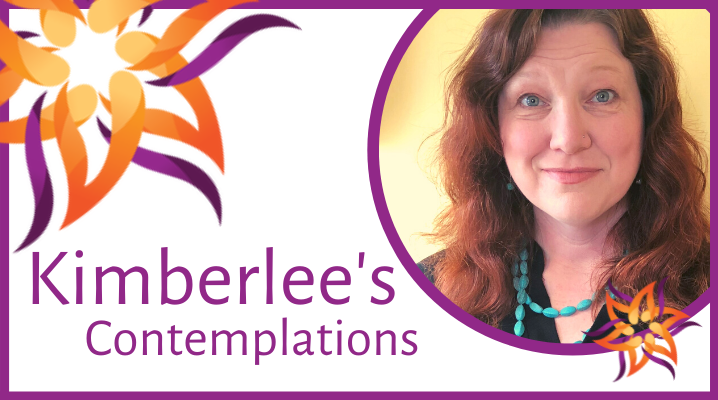Heraclitus, once said, “No man ever steps in the same river twice, for it is not the same river and he is not the same man.” The theme this month asks the question, what gifts does transformation offer? So, let’s get our toes into the river of process theology, knowing it will be brief and imperfect, just a dip to consider a grand idea.
Process theology teaches us that we are in relationship with the world, or even the universe. The idea is that we are in the process of co-creating the world around us. Our energy, actions and thoughts are all contributing to the evolution of our reality. Soulfully and molecularly, everything is transforming—we are both transforming and transformers. Since humankind has the privilege of agency, or choice, we have a responsibility to be intentional about our actions, energy, and thoughts. Spiritual transformation implies more than just knowing that change is the only constant. It asks for more, it asks for intention.
All that you touch You Change.
All that you Change Changes you.
The only lasting truth is Change.
God is Change.
― Octavia E. Butler
Moreover, process theology also supposes that the divine, or sacred, or God is developing through the interactions with the world. And those changes are divine, it is a changing co-creator through process. Process is holy, transformation is divine. It is not a coercive force, but one that is faithful to creation.
One part I like about process theology is it gives space for the plurality of religious and non-religious paths. Theists can believe God works through us and experiences the world with us. Humanists can lean into the right and responsibility to give meaning and shape to our own lives. Other faith traditions can embrace that each religious manifestation is the Divine working in a unique way to bring out the beautiful and the good. It also leaves room for mystery, that we do not yet know.
When you are a caretaker of a young person, the transformation you witness is magical. The role is sacred, filled with moments of divine joy and exhaustion while witnessing growth unfurling. Guiding another’s development is a co-creating role. In the process together, collaborators hoping to guide ourselves to a path of fulfillment, sharing love and a mysterious journey. Process theology seems to offer a reflection of a caregiver’s journey.
What gifts has transformation offered you? Does process theology resonate with you?
Wishing you a month of reflection and transformation,
Rev. Kimberlee, Minister of Religious Education
